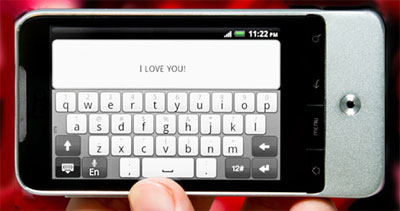Recent Stories
- Businesses urged to tap into science and technology young talent
- Digital relay baton enables remote crowd cheering of athletes
- Health Innovation Campus moves a step closer
- £7.1 million R&D boost for North West businesses
- Centre of excellence created for the next industrial revolution
- Artificial intelligence toolkit spots new child sexual abuse media online
- Strategic partnership set to help plug cyber security skills gap
- What your choice of smartphone says about you
- InfoLabTree: Discover the Story
- novi.digital Launch Event - 'An Event to Help Businesses Grow Online'
RSS Feeds
RSS feeds can deliver the latest InfoLab21 news and events direct to your browser without you having to visit the website.
In most browsers you can click on an RSS link and choose to subscribe to the feed to add it to your favourites or bookmarks.
How to deal with break-ups in the digital age
Story supplied by LU Press Office

Social networking sites should enable couples who split up to erase the evidence of their relationship more easily according to researchers.
Dr Corina Sas from Lancaster University and Professor Steve Whittaker of the University of California at Santa Cruz interviewed 24 young people about how they handled the evidence of their broken relationship in the online world.
These "digital possessions" include everything from texts, emails, music, video, social media and photos whether kept on mobile devices, a laptop or digital picture frame.
Dr Sas said: "It's particularly hard to remove the traces of a past relationship left on social networking systems and it can be painful to revisit this accidentally.
"The greatest problems involved content on Facebook where couples could easily be reminded of their ex unless they deliberately unfriended them. Even then, there could be content about your ex on your friends' pages which you can't delete."
The researchers say Facebook should offer a feature which makes it easier to delete a couple's joint content following a break up. They suggest automatic software to gather all the digital evidence of the relationship following a break up.
Dr Sas said: "It can be very time consuming when digital content is spread across different devices like laptops or tablets and this would make the task much simpler. It could also enable people to deal with the break up more effectively."
The research Design for forgetting; disposing of digital possessions after a breakup found that people adopted three strategies for dealing with digital content; either deleting or saving everything, or selectively deleting after a while.
Dr Sas said: "The best approach is not to act on impulse but instead try to wait. Then you can select which memories you want to keep and which you are confident you will not regret deleting."
Tue 02 July 2013



